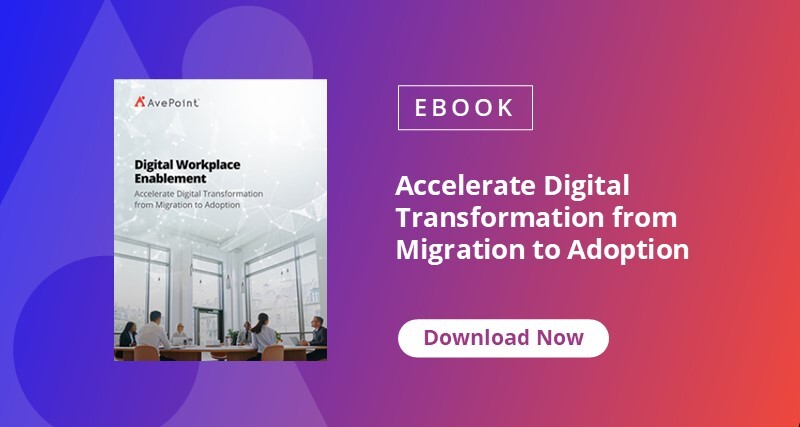From Vision to Reality: Why Digital Transformation is Key to Singapore’s Smart Nation Success

Singapore’s Smart Nation initiative is charting a course to transform society’s way of living. Smart Nation 1.0, which began in 2014, focused on laying the groundwork for improving citizens’ lives by encouraging an increase in digital adoption across private and public sectors to provide more citizen-centric digital services.
Following this initiative, Singapore ranked first globally for digital inclusion and brought its gross domestic product in 2023 to 17.7% from 13.8% in 2018. Ninety-nine percent of public sector services can now be completed online, representing the positive response of the government sector to the Smart Nation initiative. Meanwhile, the private sector saw tech professionals grow to about 200,000 in 2024 from 160,000 in 2018.
Following the success of Singapore’s initiatives and understanding of how technologies have evolved, the country has entered the next chapter of its Smart Nation journey with the rollout of Smart Nation 2.0. The new phase of Smart Nation now focuses on empowering citizens and organisations further by building a safe, reliant, and secure nation that allows organizations – public or private – to unify communities and conduct activities with confidence.
At the heart of Singapore’s Smart Nation vision lies a profound understanding of the transformative potential of digital technologies. From modernising public services to empowering businesses to thrive in the digital age, digital transformation in Singapore has become a national priority.
The Crucial Role of Digital Transformation in Singapore’s Smart Nation Goals
Public or private organisations can align their strategies toward the country’s Smart Nation goals in their journey toward digital transformation, integrating digital technologies to help create impact to an enterprise, its workforce, and the people it serves.
Digital transformation may take the form of migrating from an on-premises infrastructure to the cloud, removing data silos by consolidating data into a single cloud environment, modernising legacy business applications into a more user-friendly cloud-native interface, or introducing AI to the organisation.
But digital transformation in Singapore isn’t just about implementing new technologies — it’s about fundamentally reimagining how stakeholders interact, operate, and create value in the digital age. Here are ways that digital transformation can support businesses:
- Reinforce Operational Efficiency: Digital transformation revolutionises how organisations operate. By automating routine tasks and streamlining workflows, organisations can achieve unprecedented levels of efficiency. For example, citizens can now seamlessly do government transactions across 2,700 services from government services, as well as from banking institutions, through Singpass, which allows the organisations to verify citizens’ identity securely.
- Enhance Decision-Making Through Data: Introducing tools like advanced analytics and AI-powered insights help leaders make more informed strategic choices. One example of a public sector transformation under the Smart Nation is the Land Transport Authority’s DataMall, which deployed AI-powered digital monitoring to identify potential issues in transport systems before they occur, assisting with transport operations and government productivity.
- Revolutionise Customer Experience: Digital transformation can allow organisations to provide personalised, seamless, and timely interactions across multiple channels. In the broadband sector, the Nationwide Broadband Network increased to 1 Gbps from 30 Mbps, helping improve customer experiences and enhance operational capabilities with more seamless ways to communicate — whether it is via email, voice, or video calls.
By embracing new technologies and rethinking traditional processes, businesses can thrive in the dynamic digital landscape.
Charting a Path Toward Singapore’s Digital Transformation Success
For businesses looking to embark on or accelerate their digital transformation journey, the key is approaching it as a strategic, long-term initiative rather than a series of isolated projects. This means aligning digital strategies with broader business objectives, fostering a culture of innovation, and ensuring that the necessary organisational capabilities and resources are in place.
One of the most critical steps in this process is to comprehensively assess the current digital maturity and identify the gaps and opportunities within the organisation. Businesses can then develop a tailored digital transformation roadmap that addresses their unique challenges and leverages the specific strengths of their operations.
However, developing a robust strategy is only half the battle. Successful digital transformation also requires a willingness to experiment, learn, and adapt.
According to expert estimates, anywhere from 60% to 90% of digital transformation initiatives fail to see the expected bottom-line growth. One key reason is that businesses mistakenly believe their work is done once implementation begins. However, the success of your digital transformation is heavily dependent on the workforce’s adoption of new tools and processes by employees.
The journey of digital transformation is not a one-size-fits-all approach. It requires a strategic alignment of business and technology strategies, emphasizing the importance of stakeholder buy-in, effective communication, and continuous improvement.
Organisations should embrace an agile mindset, continuously monitoring their progress and adjusting their plans to capitalise on emerging trends and technologies.
Digital Transformation Excellence with AvePoint
As Singapore continues to forge ahead with its Smart Nation ambitions, digital transformation has never been more crucial. This presents a unique opportunity for organisations to not only future-proof their own operations but also play a direct role in shaping the nation’s digital destiny.
For many organisations, the complexities of digital transformation can seem daunting. AvePoint’s team of experts can work closely with you to identify the right solutions and strategies to support your organisation’s unique needs.
Whether it’s modernising legacy IT infrastructure, implementing cloud-based productivity tools, or designing data-driven decision-making platforms, AvePoint’s expertise and industry experience can help you unlock the full potential of your digital transformation initiatives. By aligning these efforts with the vision of Smart Nation, organisations can enhance competitiveness well as contribute to the broader societal benefits that Singapore is working to achieve.
Not sure how and where to get started? Learn more about our services here:
Phoebe Magdirila is a Senior Content Marketing Specialist at AvePoint, covering SaaS management, backup, and governance. With a decade of technology journalism experience, Phoebe creates content to help businesses accelerate and manage their SaaS journey.






